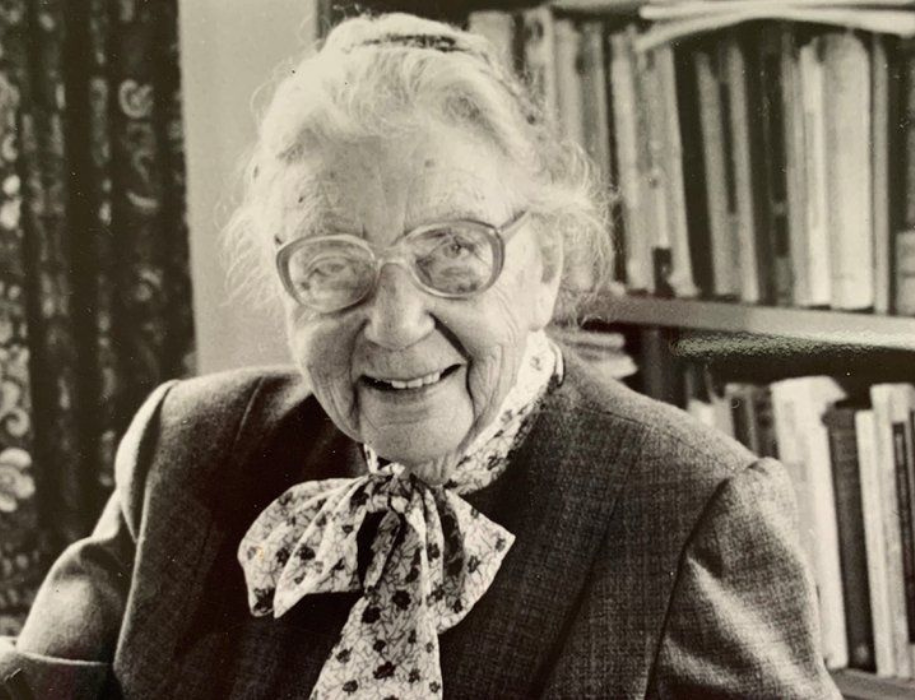Hard facts and misfits: essential ingredients of public health nutrition research
Nutrition
In honour of International Women’s Day, Rank Prize Nutrition Committee member, Professor Ann Prentice OBE, PhD shares her reflections on winning the Nutrition Society’s inaugural Widdowson Award. Elsie Widdowson CH CBE FRS (1906 – 2000, pictured below), was a pioneering British dietitian and nutritionist; she was awarded the Rank Prize for Nutrition in 1984.
I was delighted and deeply honoured to have been selected for the Nutrition Society’s inaugural Widdowson Award, which has been established to recognise excellence in public health nutrition. I am grateful to all those who nominated me for this prestigious award and to the selection panel for recommending me. This award has special significance for me because I knew Dr Elsie Widdowson during my early research career when she provided a fellowship at the MRC Dunn Nutrition Unit. This was to work with me on unanswered questions about calcium requirements in pregnancy, lactation and childhood. She has been a constant inspiration ever since.
Dr Widdowson had an insatiable curiosity and was particularly interested in any data that did not agree with expectations. To quote her directly: “If your results don’t make physiological sense, think and think again! You may have made a mistake (in which case own up to it) or you may have made a discovery. Above all, treasure your exceptions. You will learn more from them than all the rest of your data”. [1] This precept has underpinned my research over the years and continues to be important advice for all of us involved in public health nutrition. To acknowledge this, I chose ‘Hard facts and misfits: essential ingredients of public health nutrition research’ as the title of my Award lecture at the Society’s Winter Meeting 2020 and my subsequent paper in the Proceedings of the Nutrition Society. [2]
Folklore, anecdote and conjecture have dogged public health nutrition for decades, and ‘fake news’ about diet and nutrition is commonplace. The Society has been at the forefront of championing an insistence that public health nutrition policy and practice should be based on robust, objective evidence and not on conjecture and presumptions. I had the good fortune to work for many years under the directorship of Dr Roger Whitehead at the Dunn Nutrition Unit, who pioneered and encouraged the use of objective, physiological measures in nutritional research.
I illustrated the topic of my talk by referring to some of the experiences I have had working with Dr Whitehead and then after setting up my own group. In 40+ years of research on the nutritional requirements of mothers, children and older people in UK, Africa and Asia, very few of our studies demonstrated the outcomes that we had hypothesised. Our well-intentioned dietary intervention studies, designed to provide evidence of benefit among women and children living in a resource-poor region of The Gambia, produced few indications of benefit and, in some, there were unexpected findings that could be a cause for concern. Among the various examples that I discussed was the finding that, contrary to expectations, the lactational performance of Gambian women was remarkably similar to British women in many respects, despite their marginal diets. Another example was that calcium supplementation of pregnant women in The Gambia, where calcium intakes are very low, did not affect maternal blood pressure but led to reduced bone mineral density in the mother and sex-specific effects on the growth and bone development of the offspring. My paper provides an account of these and other studies, and details what ‘hard facts’ were obtained and ‘misfits’ identified that have contributed to current understanding.
My research experiences exemplify the importance to public health nutrition of robust, objective studies, conducted among different populations, cultures and ethnicities, in partnership with local communities. Dr Widdowson recognised the importance of ‘hard facts’ and ‘misfits’, and these continue to be essential ingredients of all research studies aimed at improving public health nutrition.
This article was first published in The Nutrition Society Gazette, Summer 2021
[1] Ashwell MA (editor) (1993). Advice to a Young Scientist. In: McCance and Widdowson – A Scientific Partnership of 60 Years. London: British Nutrition Foundation. pages 64-66
[2] Prentice A (2021). Hard facts and misfits: essential ingredients of public health nutrition research. Proceedings of The Nutrition Society 00 1-22, doi: 10.1017/S0029665121000574
Widdowson Photo credit: Dr Margaret Ashwell






